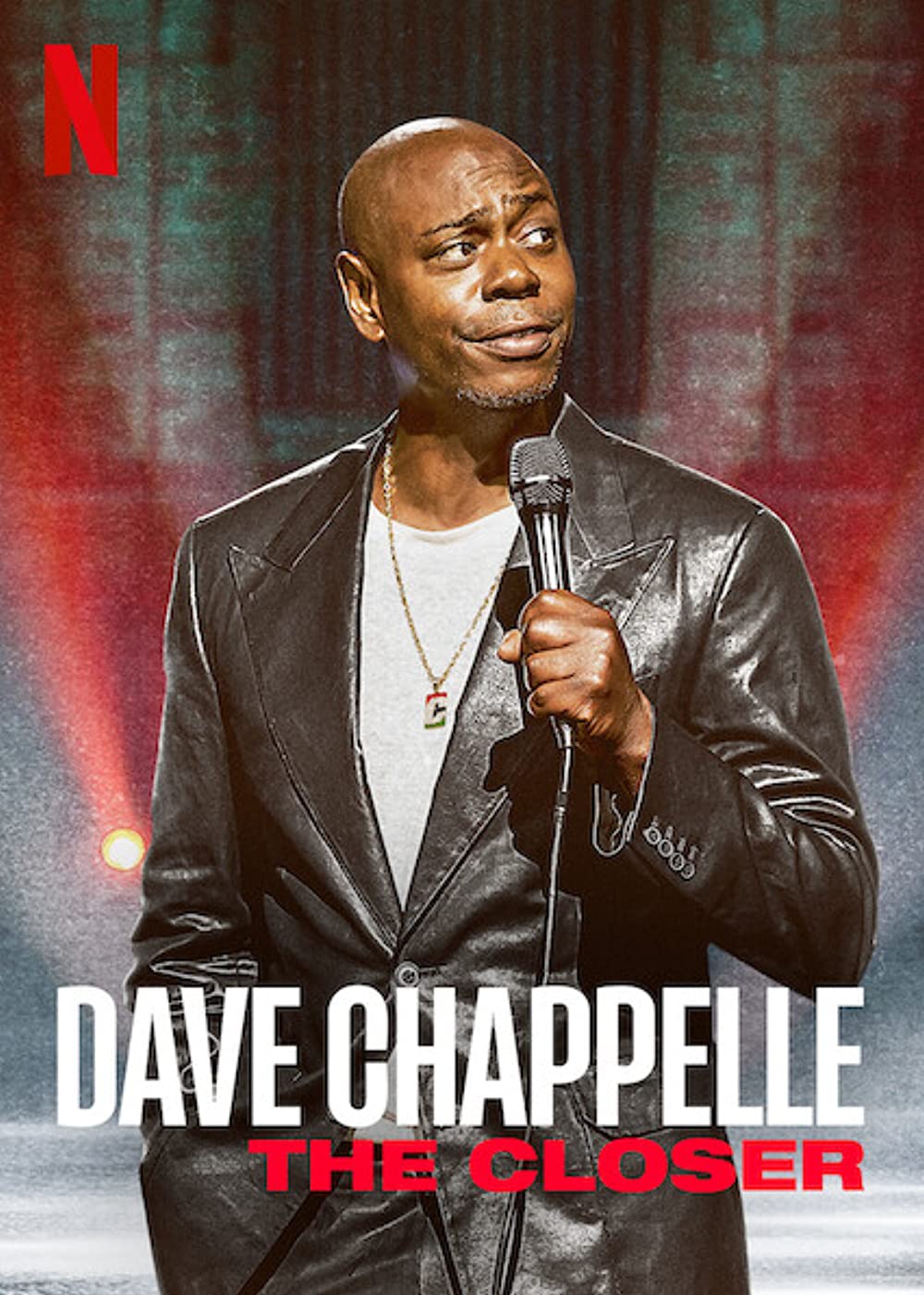Chappelle ended ‘The Closer’ stating he was done talking about the LGBTQ+ community.
Courtesy of Netflix
By Baron Reichenbach
Editor’s Note: This op-ed contains discussion of transphobia and suicide.
If you’re someone’s most accessible queer person, a celebrity making headlines for transphobic comments is the perfect catalyst for asking about your opinions.
Well folks, it’s that time of year again.
Recently, a number of people asked me to offer my thoughts on the Dave Chapelle special “The Closer,” which premiered on Netflix last month.
So, are some of Chapelle’s jokes and comments in the special transphobic or harmful to transgender people? I absolutely think so.
That said, I also don’t think Chapelle himself is an irredeemable transphobe — though I do have criticisms about how much he seems to revel in the label.
What I do think is that he’s guilty of a number of comedic and social fallacies that, for whatever reason, he doesn’t show interest in correcting, even though he expressed some awareness of them.
Much of Chapelle’s initial commentary on the trans community relies on an assumption that Black and trans don’t intersect, when this couldn’t be farther from the truth.
He claims his problem is purely with white people and he is only “punching up,” but seems to gloss over the fact that his rhetoric is harmful to trans women whether they’re Black or white. And while I can’t speak directly to it, perpetuating this invisibility of trans people of color is, in my eyes, one of the most harmful types of transphobia.
Another fallacy on Chapelle’s part is how much he misses the importance of context for trans comedy.
I feel many of Chapelle’s hypothetical stories would have been much funnier and struck a more relatable chord if they were retold from the perspective of the imaginary trans people in these stories. Because the absurdity that can come from simply walking into a bathroom as a trans person isn’t his joke to tell — it’s ours, and we tell it better because we can pull from experience that he simply does not have.
The majority of his trans jokes, however, are more in the realm of cringe humor — the kind of point-and-laugh-at-the-freaks joke that, besides reinforcing harmful power structures, just isn’t tasteful comedy, and Chapelle embracing the transphobe label for some poor-taste edginess doesn’t help.
It’s humor marketed as irreverent without being particularly clever.
And if you’re like me, a queer person who gets pointed and stared at enough in real life, seeing it reinforced on a stage in the guise of comedy can only elicit a dejected groan —because if it’s okay for Dave Chapelle to do it on a Netflix special, it’s ok for a drunk straight guy on the street to do it.
Chapelle also tries to soften the blow of his comments on the trans community with a heartbreaking story about Daphne Dorman, a trans woman he knew who opened for a previous show of his, and who committed suicide shortly after the release of his previous special, “Sticks and Stones.”
Incidentally, the best trans joke in the show wasn’t even his — it was hers, retold by Chapelle.
Where Chapelle’s commentary does carry some important weight is in this story about Dorman, who opposed much of the online backlash against “Sticks and Stones,” and was “canceled” on Twitter because of it.
While cancel culture isn’t going to hurt Chapelle directly, it can be misused against much more vulnerable people, including trans women like Dorman— and if he could have spoken more to that, it might have redeemed the show for me.
But the answer to trans Twitter’s problems isn’t a cis man taking the lead. It demands leadership within the trans community.
Trans public figures like Natalie Wynn, better known as ContraPoints on YouTube, have been pursuing discourse on the impacts of canceling within marginalized communities since early 2020. The answer isn’t to tell us how to fix our problems from the outside, but to help platform the people within our community.
What a trans person has to say on issues internal to our community is innately going to be better informed and more relevant to the community than someone who has a few trans friends.
I don’t want to be ignorant of context myself, though.
At the heart of this segment of “The Closer” is the fact that a trans woman was harassed online and took her own life, and Chapelle’s grief over it is genuine. A part of me can empathize with him for reacting in the way he did — but without excusing him for the fact that, even if he claims Darmon would’ve laughed at a joke misgendering her, it sets a harmful expectation for other trans people. And every other joke he made about trans people is no less harmful just because a trans woman he knew thought they were still funny.
There’s just something incredibly tone-deaf about a cis man, even through jokes, trying to critique the trans community so extensively.
Chapelle did pleasantly surprise me at a number of points in the special, though: When power is actually on the receiving end of his jokes.
In commenting on a bathroom bill passed in North Carolina, he pokes fun not at trans people, but at the absurdity of needing to show a birth certificate to use a Walmart bathroom. This is closer to the comedy of a genuine ally.
While Chapelle leaves off with a statement that he is “done” talking about LGBTQ+ topics, I think he misses his own potential to actually learn and do better by the queer community, and every other group he pokes at.
Because he could be funny without needing to laugh at “the freaks.” And if he focused more on laughing with us and actually listening to us, he could be a better comedian.



